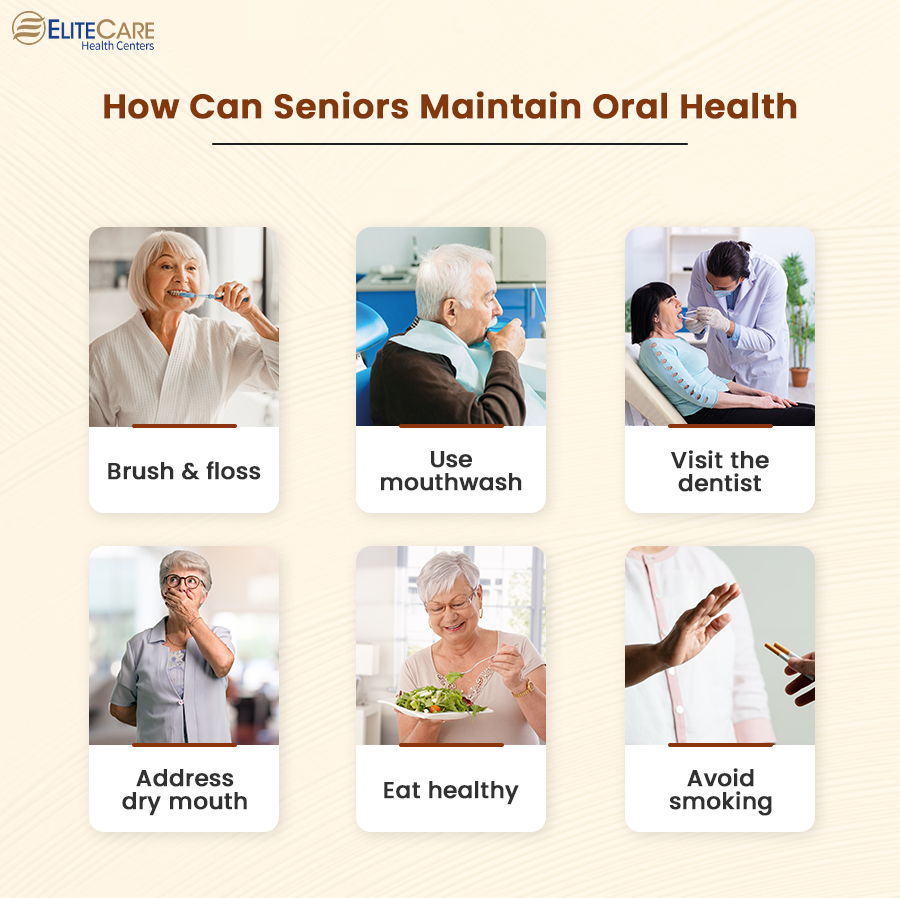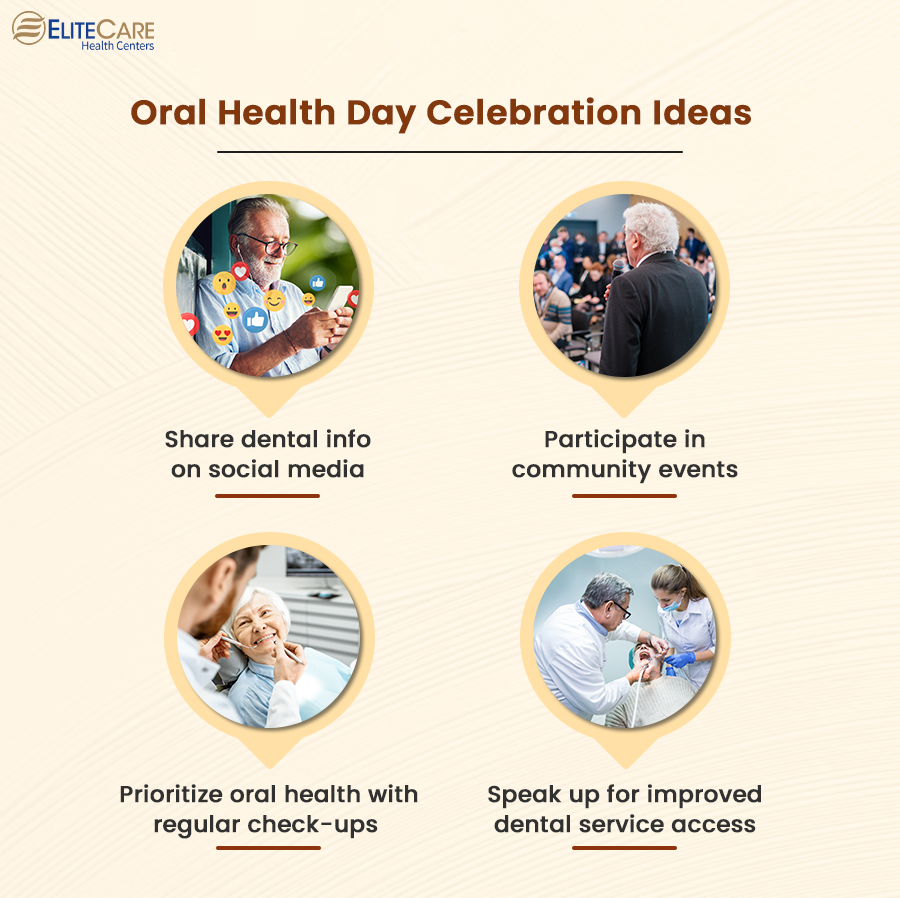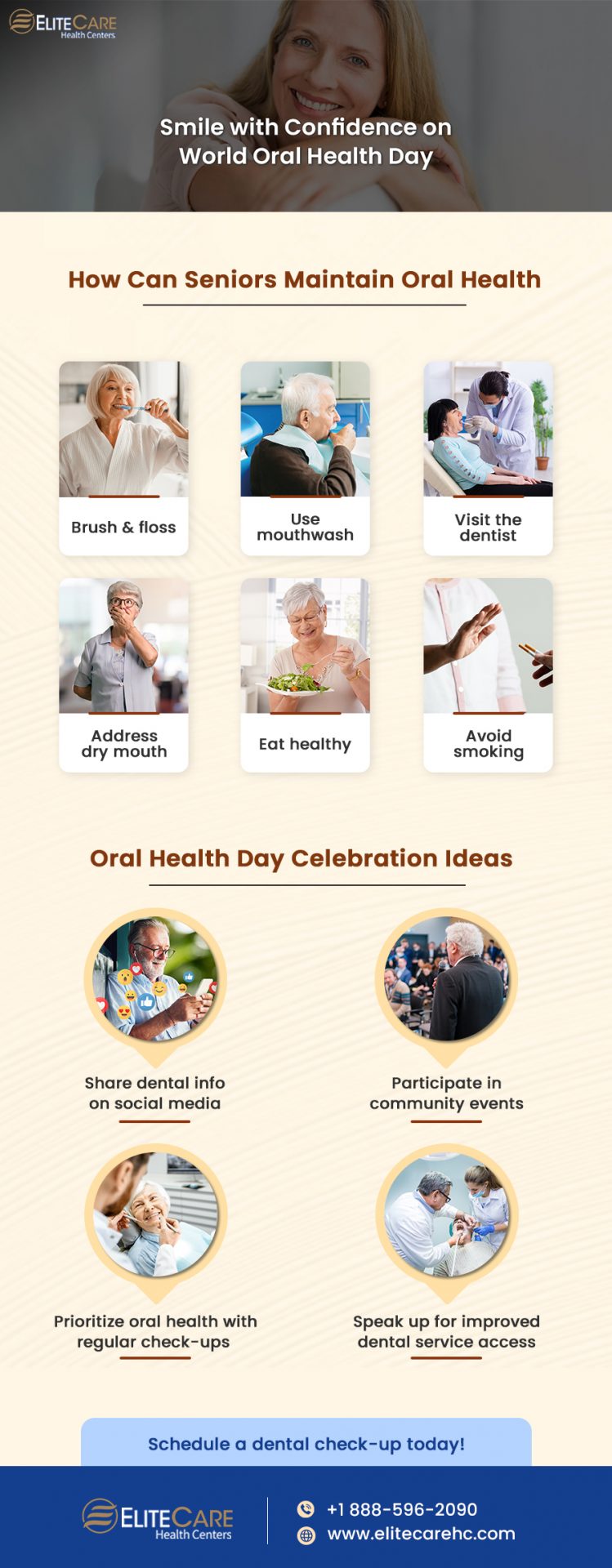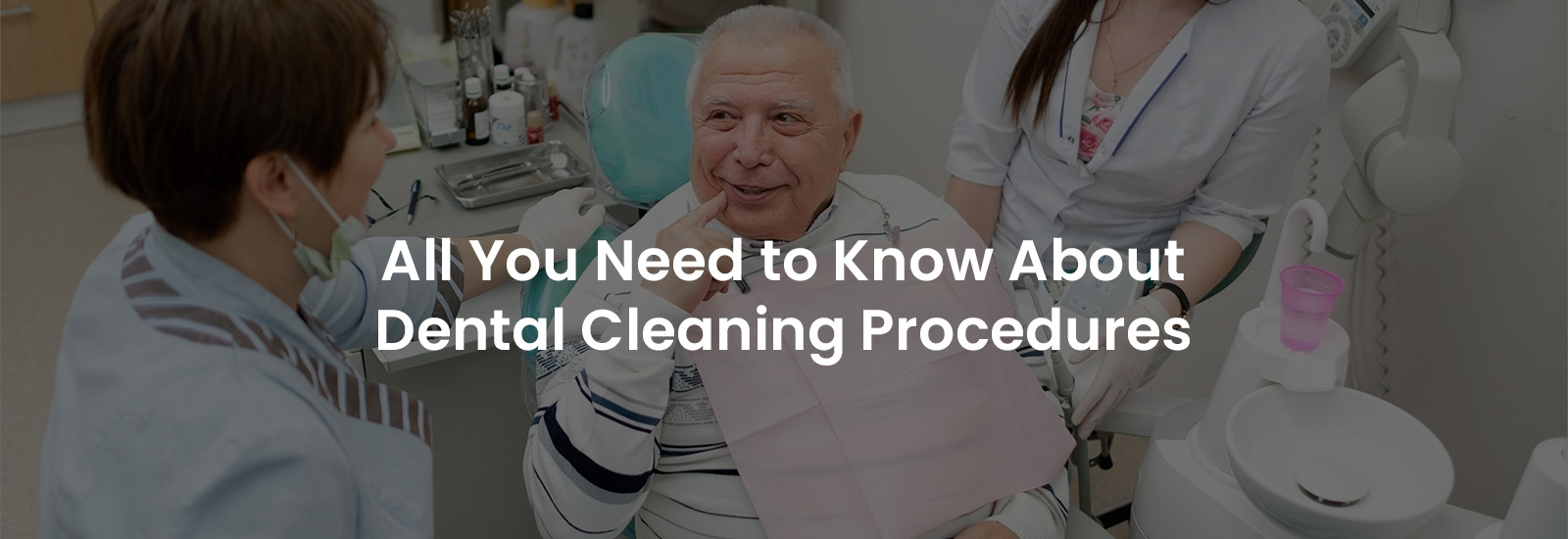
World Oral Health Day is celebrated on March 20th every year to raise awareness about the importance of good oral hygiene practices and their impact on overall health. This World Oral Health Day it’s important to focus on oral health in the elderly. With age, taking care of oral health becomes more crucial than ever. Maintaining oral health is important for seniors’ overall health and well-being. In fact, having 20 natural teeth by the end of their life indicates good health. Poor oral health issues can lead to health problems such as heart disease, stroke, and diabetes. In this blog post, we will explore the importance of oral health and strategies to help seniors maintain healthy mouths to enjoy golden years with a confident smile.
The Importance of Oral Health for Seniors
Poor oral health in seniors can cause several systemic diseases. The mouth is a gateway to the rest of the body, and when oral health is neglected, harmful bacteria from the mouth can enter the bloodstream and cause several health issues. For example, gum disease can lead to inflammation that spreads throughout the body and affects various other organs. Inflammation is riskier for seniors due to their weaker immune systems. Gum disease bacteria can attack blood vessel walls and increase the risk of cardiovascular disease. Furthermore, seniors with diabetes have a greater chance of developing gum disease due to high blood sugar levels. By taking care of their oral health, seniors can reduce their risk of developing other health problems and improve their quality of life.
Practical Ways for Seniors to Maintain Oral Health

Seniors can maintain good oral health and reduce their risk of developing systemic diseases through the following best practices:
1. Brush and floss regularly
Seniors should brush their teeth at least twice a day and floss at least once a day. The American Dental Association recommends using fluoride toothpaste to remove plaque and food particles that can cause tooth decay and gum disease.
2. Use mouthwash
Mouthwash kills bacteria and freshens breath. Seniors should look for an alcohol-free mouthwash that contains fluoride, which can help strengthen teeth and prevent tooth decay.
3. Visit the dentist regularly
Regular dental checkups are crucial. Seniors should schedule a visit with a dentist every six months or as their dental health service provider recommends. Dental services such as cleaning, exams, and x-rays can help detect and treat dental problems early on.
4. Address dry mouth
Dry mouth can be caused by medication, radiation therapy, and certain diseases. To address dry mouth, seniors can try drinking more water, chewing sugar-free gum or sugar-free candy, and using a humidifier at night.
5. Eat a healthy diet
Seniors should eat a balanced diet with plenty of fruits and vegetables, lean protein, and whole grains. Limiting sugary and starchy foods can help reduce the risk of tooth decay and gum disease.
6. Avoid tobacco products
Smoking and tobacco products can increase the risk of gum disease and oral cancer; seniors need to quit.
Studies have shown a strong link between oral and systemic health, making it essential for seniors to prioritize their oral health. To avoid costly and painful procedures, it is essential to seek dental services regularly and not wait until dental issues become severe.
Celebrating World Oral Health Day

World Oral Health Day is an excellent opportunity for seniors to celebrate their healthy smiles and promote good oral health in their communities. Here are some ideas and suggestions as to how seniors can celebrate this day:
1. Share information on social media
Seniors can use social media platforms to share information and resources about good oral health. They can post photos of themselves brushing their teeth or sharing some oral health tips with their followers, family, and friends.
2. Participate in community events
Many communities do host events to celebrate World Oral Health Day. The elderly can participate in these events or give presentations on ‘Why Maintaining Oral Health is Important’ at local community centers, senior centers, or retirement homes. This can be a great way to share their knowledge and experiences with others on good oral health.
3. Connect with a dental professional
Seniors can connect with a dental health service provider to ensure their teeth and gums are healthy.
4. Promote access to dental services
Seniors can advocate for improved access to dental care services for other seniors in their communities, particularly those who may not have access to these services due to financial issues or other reasons.
Conclusion
By celebrating World Oral Health Day, seniors can raise awareness about the importance of good oral health and promote healthy smiles in their communities. Sharing knowledge and resources on oral health with family and friends can also help ensure everyone can access the information they need to maintain a healthy smile. Seniors can schedule routine dental checkups at EliteCare medical clinics to treat dental problems and discuss any concerns or changes in their oral health.






